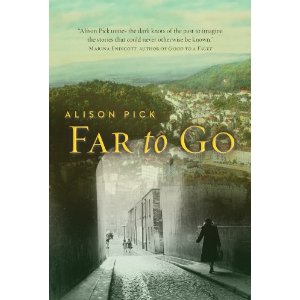My friend Nicole posted this article by Michelle Dean onto her Facebook page:
Why the Man Booker Prize Should Keep Americans Out to Keep the Rest of the World In
I found myself identifying with every word in this article, by a fellow expat-in-the-US Canadian, to the degree that I began to wonder whether I had in fact developed some sort of second identity and had actually written it myself (Anne of Green Gables? Check. AS Byatt and Hilary Mantel? Check. Squishy feelings of treachery the day I got US citizenship? Check. Okay, that is me identifying with David Rakoff.) And I have similar personal reasons for wishing the Booker would remain closed to American writers. Frankly, I don’t find I connect much with American literary writing, past or present, and if I want literary fiction, I tend to turn to a Commonwealth author. It was very kind of the Booker over the last decades to make the best easy for me (and I think this is the place to subtly work in the fact that my cousin Alison Pick was longlisted for the Booker in 2011.)
But I can accept that the Man Booker people are not attending to my interests and desires. They are still making a mistake. The main reason the Man Booker people should not open their prize to Americans, is that it risks making the prize irrelevant. There are already several internationally prominent American prizes for best American book. The Booker risks becoming an also-ran, the Golden Globes of the book world. “We liked it too!” “Yeah, big deal.” Or maybe year after year, they will resolutely not give it to an American; maybe that is part of the point. And then we’ll be subjected to headlines “Americans shut out of Man Booker again,” “Franzen snubbed by Man Booker Committee,” before finally, “First American to win the Man Booker.” Spare me.
How do you feel?

